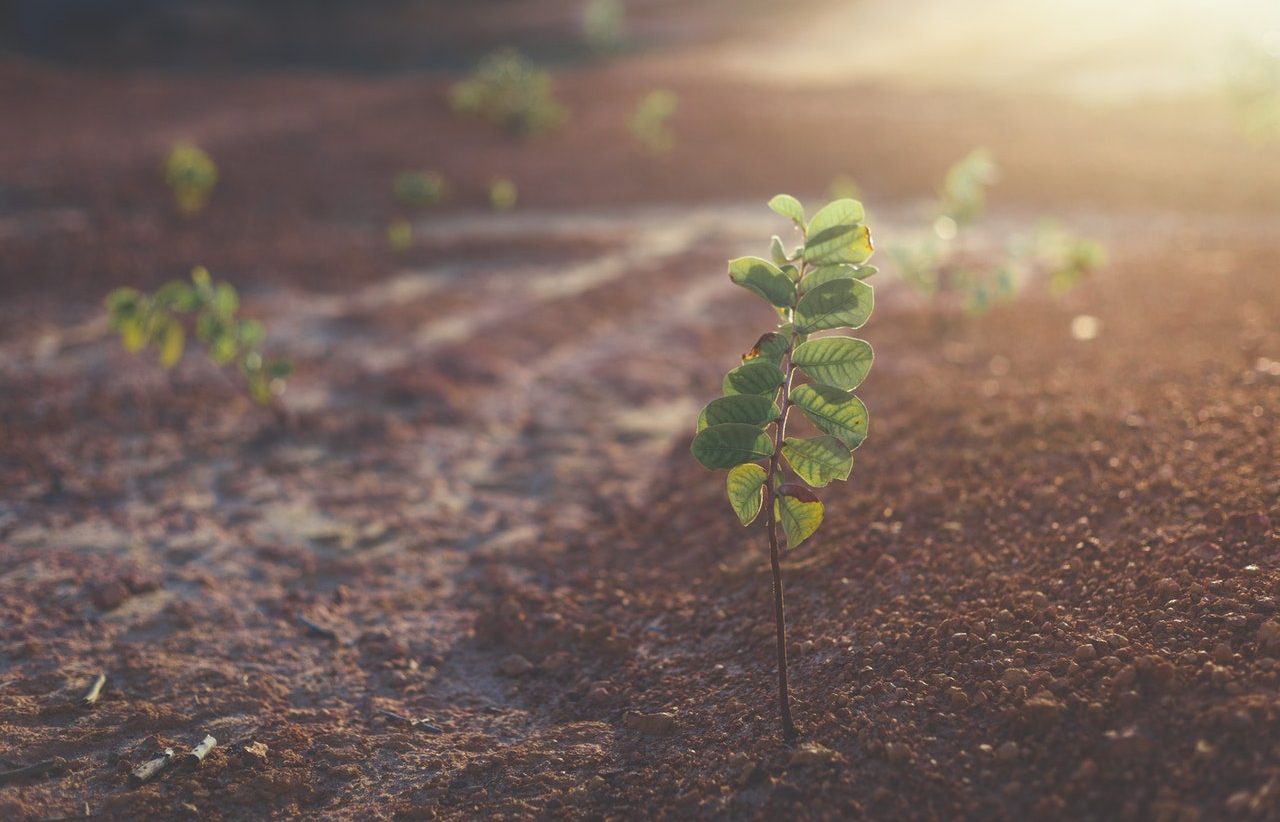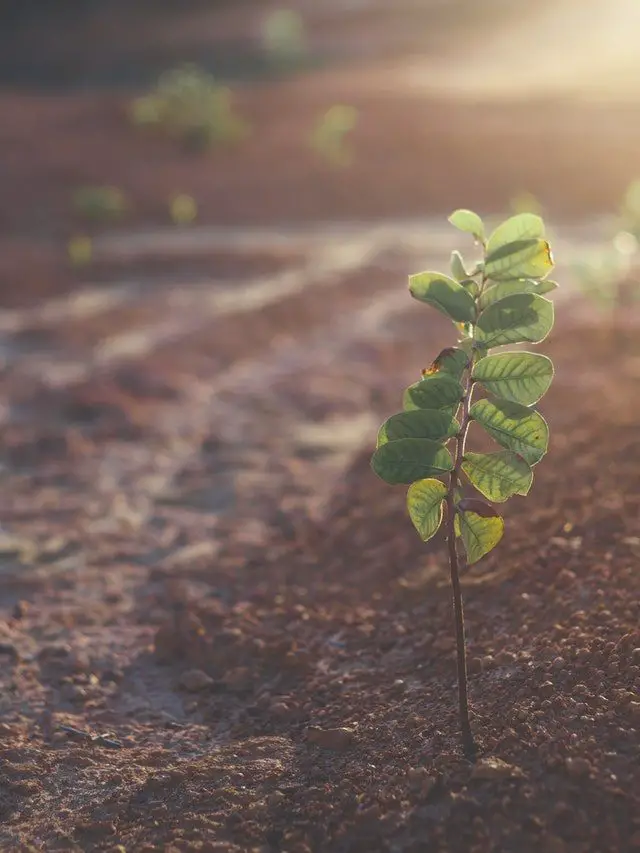Soil that is hard, dense, and compacted is tough for plants to survive in. Any avid gardener would know hard soil is the worst. We will show you a few methods here on how to soften hard soil.
Impacts Of Hard Soil
Hard soil prevents water from penetrating, so any water that comes in contact with it will roll right off. Without softening the soil, water will pool and might flood parts of your landscape. Hard soil also prevents the plant roots from growing since the roots are often tender. Even if plant roots can grow in hard soil, it would lack moisture or nutrients to sustain healthy growth.
Methods to Soften Hard Soil
Good news! You can soften hard, dense, compacted, infertile soil and we’ll show you how. Here are some useful methods to soften hard soil. Soil so soft, it will grow an abundance of food plants and flowers in your landscape!
1) Soften Hard Soil By Adding Water
Softening hard soil by adding water may seem like common sense but it’s the simplest and most effective way to soften soil. It should be one of the first things to try. Add moisture with a garden sprinkler and allow the soil to become saturated but not soggy and turn into mud. Place a garden sprinkler in the area that you want to soften the soil and let it run until the soil becomes workable. You may have to repeat this process a few times. Moisten the soil, wait a few hours, and repeat.
An alternative method is to wait for rain, which is also a good time to soften the soil. Wait for a slow, soaking rain instead of a quick downpour. A downpour of rain will just run off the hard soil and won’t help to soften it.
Whether you are using the sprinkler method or opting for mother nature’s rain, you can start working with the soil once it’s noticeably softer.

2) Soften Hard Soil By Tilling The Soil
This method will require some effort, so we hope you’re up for some exercise! Tilling the soil is a physical way to soften and loosen up the soil.
This method of softening entails digging up the top seven to eight inches of soil with a shovel. Start by turn over each section of hard soil so the underside will be facing upward. After each section is turned over, break up the pieces into smaller chunks by hitting them with the shovel or spade. Allow the overturned soil to dry for 2-days, and then moisten it with water.
3) Re-Moisten and Rake
Spray the overturned soil with a light mist of water from the garden hose. Don’t saturate the soil, just moisten it thoroughly. Use a heavy-duty garden rake and begin to rake the soil until it’s smooth. Work with a back and forth motion, breaking up clods as you rake.
4) How to Soften Hard Soil by Adding Gypsum
Gypsum is a natural mineral that is found in many everyday items, like toothpaste, shampoo, and potting soil. Have you wondered what those small white pieces are that look like bits of Styrofoam in potting soil? That is gypsum and is chemically known as calcium sulfate hydrate. That stuff will soften hard soil by absorbing and holding moisture, which will prevent the soil from being compacted. Chemically, it will also reduce the amount of salt in the soil and increase the calcium level.
Gardeners sometimes increase the amount of fertilizer used on hard soil in an attempt to grow vegetation. The extra fertilizer does little good too soften the soil since it does not address the real issue of hard soil. However, all that fertilizer does leave behind an excessive amount of salt in the soil and an application of gypsum will reduce the salt content in the soil.
Gypsum helps heavy clay soils by binding with the clay and preventing it from cracking and developing a hard crust on top. When clay soil becomes wet from rain then sits under the hot sun after the rain, it hardens like bricks in an oven. Gypsum will keep the clay soil soft and pliable even when it’s fully exposed to the sun.
A good rule of thumb is to mix 20-30 pounds of gypsum for every 1,000 feet of garden soil. Gypsum is spread with a hand-held spreader and will remain in the soil for a few years. Work the gypsum into the soil about ten inches deep with a turning fork.
5) Soften Soil by Adding Organic Matter
Another method to soften hard soil is adding organic matter. One reason soil becomes hard, and unfertile because it lacks organic matter. Organic matter, for example, compost or manure, will feed the soil. Additionally organic matter will prevent soil from getting compact, and promote the development of a bio-diverse sub-culture in the soil. To understand more about organic matter, check out this great paper.
The nutrients and organisms in the compost and/or animal manure attract a variety of soil-based organisms, like earthworms, that create underground tunnels. The tunnels soften the soil by allowing water and air to circulate and reach plant roots. Earthworms also leave behind castings that are rich in nutrients and help feed the plants.
The method is to apply 2-4 inches of compost or animal manure on top of the garden soil and work it down to 6-8 inches deep. You can easily do so using a turning fork to work in the organic matter.
Preventing Hard Soil
One way to avoid hard soil is to prevent it from happening. Yearly applications of organic matter will help prevent the soil from becoming hard and compacted again. To keep soil softened, add organic material such as compost or animal manure into the soil each spring before planting time. Apply organic mulch, like hay, around plants and allow it to decompose and work its way down into the soil. The organic material will ensure the soil is softened year round.
For those in climates with snow, a strategy to keep soil soft is to plant a winter cover crop. Crops such as turnips, kale, or spinach helps to prevent the garden soil from being compacted by winter rain and snow. Turn the winter cover crop under into the soil in late winter.
One final tip is to avoid walking on garden soil when possible. The weight of people walking around will compact the soil and make it hard quickly.
Plants To Grow In Hard Soil
If you cant beat it join it, they say. If you dont want to worry about softening the soil, there are plants that will grow in hard soil.
Marigolds, bee balm, Joe Pye weed, cabbage, lettuce, chard, broccoli, and Brussels sprouts will thrive in hard, clay soil. These plants have shallow roots and the hard soil gives them more anchorage than loose, loamy soil.

